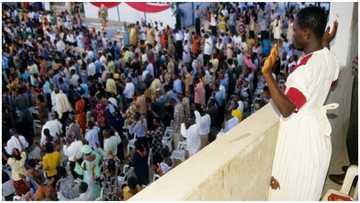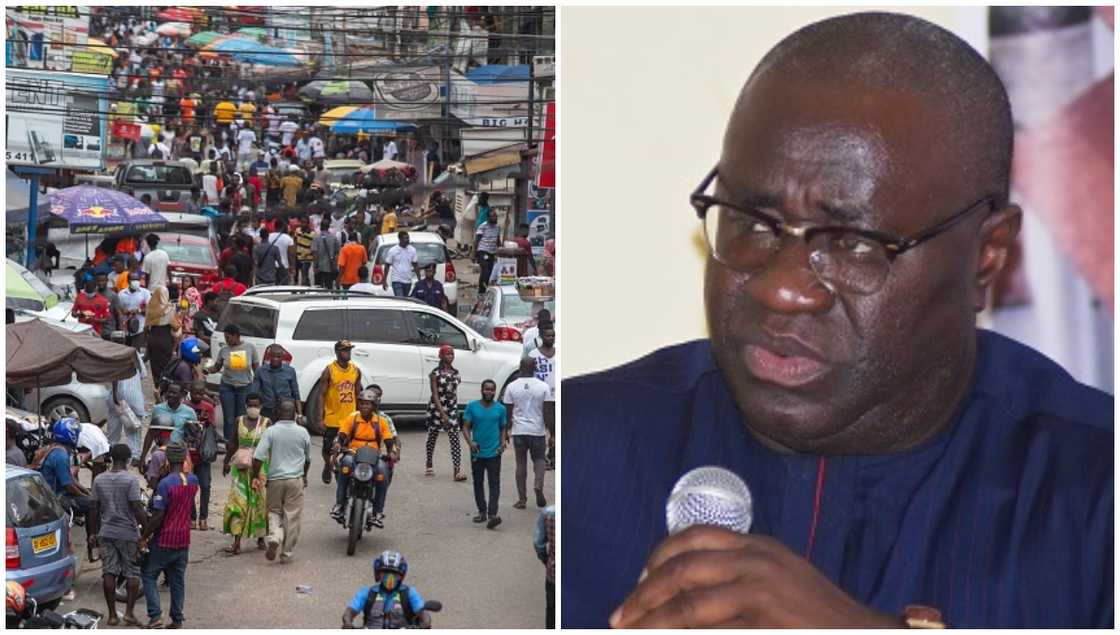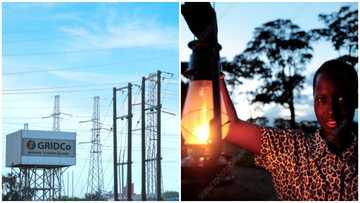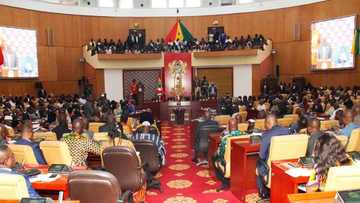Terrorist Attack: Ghana Expert Gives 3 Tips On How To Reduce Chances Of A Strike
- Prof Emmanuel Kwesi Aning has admonished the general public to support the state's efforts to quell a possible terrorist strike on Ghana
- He has given tips on how to reduce the chances of an attack on Ghana, including being vigilant, especially in crowded places
- His admonishing follows the revelation by Ghana's Ministry of Defence that the threat of a possible strike on Ghana was very high
PAY ATTENTION: Click “See First” under the “Following” tab to see YEN.com.gh News on your News Feed!
Amid the growing threat of a terrorist attack on Ghana, a security expert has given five tips on what individuals and institutions can do to reduce the chances of a strike on the country.
Security expert, Professor Emmanuel Kwesi Aning, has told YEN.com.gh in an exclusive interview that although security agencies may have a robust strategy to defeat extremist groups, it is bound to fail without the active involvement of citizens.

Read also
National Security Ministry advises churches to install CCTV cameras amid growing terrorism threat

Source: Getty Images
Prof Aning, who is the Director, Faculty of Academic Affairs & Research, Kofi Annan International Peacekeeping Training Centre (KAIPTC) in Ghana said the key is for ordinary citizens to be security-conscious and keep an eye on things like an unattended bags or containers.
He added that another red flag is when someone seems to have an unexplainable high level of interest in the security of an outdoor setting or a building. His advise follows an admission by the Defence Ministry that the threat of a terrorist attack on Ghana was high.
PAY ATTENTION: Follow us on Instagram - get the most important news directly in your favourite app!
Prof Aning listed the following tips to guide people on how to help the state fight the growing threat of a terror strike on the country:
1. Remain vigilant, especially in public places
The public must be extra vigilant in places of mass gathering like churches, markets, malls, funerals, and festivals, among others.
“Even though churches and crowded places have been mentioned by the Defence Ministry as key targets, a terrorist group may not necessarily target those. So critical infrastructures must be given extra security,” Prof Aning advised.
2. Report suspicious situations immediately
Prof Aning told YEN.com.gh that the renewed fears about a possible strike present a good time for citizens to cultivate the habit of calling police emergency numbers.
He noted that while a bag lying unattended at the corner of a mall would usually not be a cause of alarm, under the circumstances, it is best to first draw the attention of the security of the building who would know what to do.
He advised that in situations where there is no security in the building, the police emergency numbers should be dialed.
“Citizens must see this as a common and joined fight,” he admonished.
The National Emergency numbers are as follows:
Police – 112, 191 and 18555
Fire service – 112 and 192
Ambulance – 112 and 193
3. Beef up the security of buildings
Prof Aning advised owners of public places like churches to beef up security by doing the following:
- Install CCTV cameras and review footage often to monitor, and detect suspicious characters;
- Rethink security of the place with an emphasis on likely places an attacker could strike from;
- Hire a private security company.
Terrorist Attack: Ghana Churches Urged To Install CCTV Cameras Amid Growing Threat
Meanwhile, YEN.com.gh has reported in a related story that the National Security Ministry has urged churches in Ghana to install CCTV cameras amid growing threats of a possible terrorist attack on the country.
In a statement dated May 12, 2022, the Ministry explained that Ghana risks an attack because of growing threats of terrorism from the sub-region, an expansionist drive of terrorist groups toward the coastal West-African States, and a renewed modus operandi of targeting public gatherings, including places of worship.
The statement signed by the National Security Ministry Coordinator, Major General Francis Adu-Amanfoh (rtd) said it has become imperative that precautional measures are taken by churches and other stakeholders.
Source: YEN.com.gh



